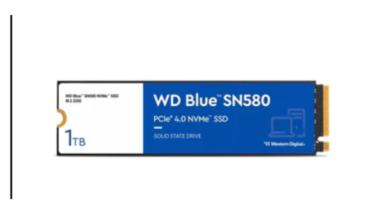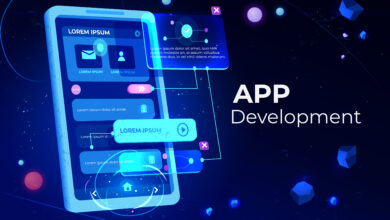Top 7 Most Popular Programming Languages for Seamless Mobile App Development

1. Swift
Apple’s robust and user-friendly programming language for creating apps for iOS, macOS, watchOS, and tvOS is called Swift. Since its 2014 introduction, Swift has grown in popularity quickly thanks to its current syntax, speed, and safety. It is the perfect option for developing iOS apps since it is optimised for speed and made to integrate seamlessly with Apple’s Cocoa and Cocoa Touch frameworks. Swift facilitates speedier development cycles and a more seamless user experience thanks to its clear code, interactive debugging, and strong error handling.
2. Kotlin
Since 2017, Kotlin, a statically typed programming language created by JetBrains, has been formally supported for creating Android apps. Because of its complete Java interoperability, developers can utilise pre-existing Java frameworks and libraries. Thanks to its expressive and succinct syntax, Kotlin is recognised for decreasing boilerplate code and increasing productivity. Because of its null safety features, frequent programming errors are reduced, resulting in Android applications that are more dependable and stable. A thriving community and solid support from Google further contribute to Kotlin’s rising popularity.
3. Java
Since the beginning of the Android platform, Java has been essential to the creation of Android apps. Java is well-known for its robustness, portability, and large library, which let programmers create scalable, fast apps. It is a flexible option for developing mobile apps because of its object-oriented design and abundance of development tools. Because of its large ecosystem, sophisticated tooling, and thorough documentation, Java continues to be a popular choice even as newer languages like Kotlin are gaining popularity.
4. Python
High-level and adaptable, Python is renowned for its readability and simplicity of usage. Despite not being often associated with Development of Mobile Applications, Python can now be used to construct cross-platform mobile apps thanks to frameworks like Kivy and BeeWare. Python’s large library and friendly community make it an excellent option for rapidly creating sophisticated applications. Using libraries like TensorFlow and PyTorch, Python is especially well-suited for incorporating machine learning and data science features into mobile apps.
5. C#
Microsoft created the strong and adaptable C# programming language, which is frequently used to create Unity-powered Windows apps and games. Additionally, it is a well-liked option for developing mobile apps, particularly cross-platform applications that make use of the Xamarin framework. C# is an effective language for creating reliable and fast mobile applications for the iOS and Android platforms because of its rigors type checking, modern syntax, and smooth integration with the .NET Programming Frameworks.
6. Golang (Go)
Google created Golang, also referred to as Go, a statically typed language renowned for its effectiveness and simplicity. Go’s performance and scalability make it a feasible alternative for mobile app development, especially for applications demanding significant computation and concurrency, despite the fact that it is more frequently employed for backend development. Go’s speed and efficiency in mobile contexts may be utilised by developers thanks to frameworks like gomobile and mobile packages, which facilitate the development of mobile apps using Go.
7. JavaScript
Together with HTML and CSS, JavaScript is a dynamic, high-level language that is the foundation of web development. JavaScript can be used in conjunction with frameworks such as React Native and Apache Cordova to create cross-platform mobile applications. Facebook created React Native, which offers a native-like experience and lets developers write code only once and distribute it on both iOS and Android. JavaScript is a useful tool for developing fluid, dynamic, and responsive mobile applications because of its wide ecosystem and versatility.
Why Choose the Best Mobile App Development Languages?
Selecting the top mobile application development languages is essential to guaranteeing your app’s performance, success, and maintainability. These are the main justifications for why this decision matters:
Code Reusability and Development Time
Reducing the amount of time and effort required for development can be achieved by choosing a language that allows for code reuse. For example, JavaScript and React Native are languages and frameworks that allow developers to create code once and have it run on both iOS and Android platforms. Because changes only need to be made to one codebase rather than several, this streamlines maintenance and upgrades and expedites the development process.
Performance
The programming language you select will have a big impact on how well your mobile app works. Better performance and efficiency are provided by native languages like Swift for iOS and Kotlin for Android, which result in snappy and responsive user interfaces. Because these languages are tailored for certain platforms, developers can take full advantage of the hardware capabilities of the devices. Apps with high performance have higher user happiness and retention rates.
Staffing or Resources
The availability of knowledgeable developers in a specific language is a crucial factor. Employing seasoned developers is made simpler in certain languages due to their larger communities and greater skill pool. For example, there are plenty of Java and Swift engineers available, but staffing issues may arise with more specialised languages. Selecting a language with a strong developer community also guarantees better libraries, resources, and support, all of which can hasten debugging and development.
Future Modifications
Selecting a programming language that facilitates simple adjustments and expandability is crucial for the sustained prosperity of your application. Technologies with robust community support and frequent updates are better able to adjust to changing demands and trends. For instance, Apple and Google, respectively, provide frequent updates for languages like Swift and Kotlin to make sure they stay up to date with platform modifications and new capabilities. Future improvements and alterations are easier to handle because of this flexibility.
How to Choose the Best Programming Language for Mobile Apps?
1. Identify Your Needs
Start by determining the precise requirements of your project. Think about things like the intended user base, platform (Android, iOS, or both), app complexity, and necessary functionality. React Native and Flutter are two cross-platform development frameworks that may be appropriate if you want to target consumers of both iOS and Android. Native languages like Kotlin for Android and Swift for iOS are great options for developing platform-specific apps.
2. Project Complexity
Determine how complicated your project is. Simple programmes with limited functionalities may be suitable for languages like Python or JavaScript, which enable quick development and user-friendliness. Native languages like Swift or Kotlin are preferred for more complicated applications that need to integrate with hardware, perform at a high level, or require advanced capabilities. Comprehending the intricacy aids in selecting a language that strikes a balance between performance and development efficiency.
3. Programming Language’s Scalability and Performance
Think about your app’s performance and scalability needs. You need a language that can effectively handle these demands if your programme needs to analyse real-time data, handle a huge number of users, or carry out intricate calculations. Scalability and fast performance are well-known features of languages like Java, Swift, and Kotlin. Assess if the language can accommodate further development and improvements without requiring a lot of rewriting.
4. Pay Attention to Security
A key consideration in the creation of mobile apps is security. Select a language that lets you apply best practices for safeguarding user data and offers strong security features. Strong security features are provided by languages like Swift and Kotlin, which are also backed by security updates from the corresponding platforms. Make sure the language includes tools and libraries that assist in reducing typical security risks.
Conclusion
A number of considerations must be balanced while choosing the optimal mobile app development language, including performance, future adaptability, development time, and resource availability. By giving careful thought to the complexity, scalability, security, and other needs of your project, you may select a programming language that will not only satisfy your immediate needs but also contribute to the long-term viability and maintainability of your application.
The target platform, the specifications of the project, and the developer’s experience all play a role in selecting the best Programming language for creating mobile applications. Java is still a solid option for Android app development, but Swift and Kotlin are great options for native iOS and Android programming, respectively. Specific benefits are provided by Python, C#, Golang, and JavaScript for cross-platform programming and specific use cases.



